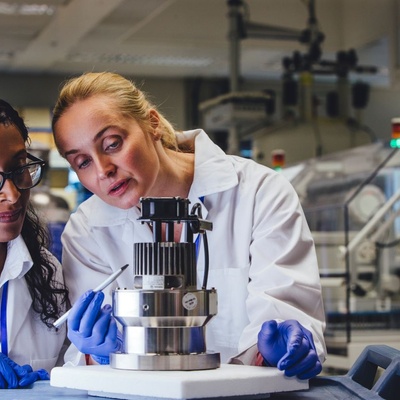The science industry in Australia is immense—from pharmaceutical and medical technology to research to engineering, and production to directorship—and attracts a wide range of people with a passion for researching and discovering new technologies, a drive to help others through innovation, and a lifelong interest in a diverse career with many different options and paths.
Understanding how to get a job in science involves researching various career opportunities, from bioinformatics to medical technology, and the increasing importance of core skills such as communication and laboratory testing.
Understanding the industry and the requirements of these roles is critical, as advancements in these fields directly impact global health, technology, and the environment. Pursuing such careers is a personal achievement and a contribution to societal progress.
The exciting part for those looking to enter the industry is that it constantly evolves, with new opportunities arising regularly as technology and innovation drive the research and production cycle. This blog looks at these opportunities, the skills and experience involved, and some essential advice to get started in the exciting and rewarding field of science and technology.
Understanding the Landscape of the Scientific Industry
There is a huge demand for qualified science professionals in Australia, which is only set to grow further. This demand provides exciting opportunities for new entrants or experienced professionals looking to enter the country's various scientific industries.
According to the 2023 Skills Priority List report from the Australian Government, 82% of the health industry was experiencing a shortage in skills, while 54% of the Design, Engineering, Science and Transport industry also saw a lack of crucial skills and experience.
Specific demand for these roles varies from region to region, with more opportunities around larger cities like Perth, Canberra, Sydney, and Melbourne. And salaries are impressive, too, with the average research scientist earning between $85,000 and $111,000 per year in 2024.
Types of Science Roles
Science careers span a broad spectrum, from traditional medical and laboratory research roles to emerging fields influenced by technology and global needs. Integrating disciplines such as biology with computer science or chemistry with engineering reflects a trend where multifaceted skill sets are increasingly valuable. This blending of expertise allows professionals to tackle complex problems from multiple perspectives, enhancing innovation and efficiency in solutions.
As mentioned, the science industry, and even ‘science’ as a term, is broad and encompasses many different roles and opportunities. A typical career path is through research and development, but there are supporting roles in management, quality assurance, technical and electrical, maintenance, transport, sales, marketing and training, and finance. This article focuses on scientist-related fields, but employers like Johnson and Johnson, IQVIA, and GSK employ thousands of Australians across a wide range of roles; there are opportunities across a diverse range of skill sets and experiences.
Educational Requirements and Certifications
Necessary Degrees and Certifications
Aspired professionals must meet specific educational benchmarks to embark on a career in science, particularly in specialised fields such as medical technology or bioinformatics. For example, a postgraduate degree, typically a Ph.D. or an MScR is essential for certain roles. These positions often require deep expertise in the field, evidenced by attaining the highest educational qualifications.
Importance of Higher Education and Specialization
Higher education and specialisation through certifications greatly enhance the trajectory of a scientific career. In rapidly evolving fields, such as scientific research and STEM-related industries, certifications are a testament to a professional's dedication and expertise. They validate the individual's specialised skills and knowledge, making them more competitive in the job market.
For instance, STEM certifications are crucial for staying aware of technological advancements and methodologies. They enhance a candidate's resume and increase employability, providing a significant edge in securing positions at top research institutions and leading-edge companies. Certifications can also lead to better job security, higher earnings, and greater professional mobility, both geographically and across various scientific domains.
Obtaining these certifications also often includes engagement with professional societies and continuous learning, vital for personal growth and career advancement in the science sector.
Hard Skills vs Soft Skills
Science professionals must have a wide range of abilities and experience, and the ideal candidates will have a mix of knowledge and experience coupled with personal skills and abilities to thrive in the industry.
Hard skills are the abovementioned qualifications, including the degree, additional qualifications and certifications, and further training and development. These define what an individual knows. Degrees and qualifications will vary depending on the specific roles. From there, a career is shaped based on a cycle of training, development, and moving to new roles as an individual develops their career. With such a broad scope of options, hard skills and experience are invaluable in developing a career path.
Soft skills are more broad abilities that define how an individual works. Soft skills include teamwork, management ability, interpersonal skills, the ability to learn and adapt quickly, accuracy, and time management. These skills are more difficult to demonstrate with a qualification – instead, they are displayed through examples of work done. The advantage of soft skills is they can be learned and shown from anywhere rather than specific to the role. Demonstrating these abilities shows an employer that, coupled with the knowledge to do the role, an individual can thrive and do the role well.
How to Overcome Challenges in Entering the Science Industry
When it comes to developing an exciting career, there are some specific challenges that someone working in science should look to overcome. Facing these challenges is universal for the industry, and it is exciting and rewarding to meet them and develop a career.
Starting Strong
Individuals in the early stages of choosing their career, such as those at the undergraduate level or those leaving school or college, must commit to doing well in an accredited higher education course. At this career stage, without prior experience, performing well in a degree course is the first indicator for an employer that you can commit to the work, learn and develop, and demonstrate the key skills they are looking for in new hires.
Securing the First Role: Internships and Placements
Even with the wealth of opportunities in the science industry, getting a foot in the door can still be challenging due to the high expectations in skills, qualifications and experience. A great way to begin a career in science is to look to secure a placement or internship in a Good Manufacturing Practices (GMP) environment. The skills and experience gained from an internship can be invaluable when applying for the next step in a career, as well as developing an essential understanding of the role of GMP in the science industry.
Balancing Work and Continuing Education
Balancing the demands of a full-time job with the need for ongoing education is a significant challenge for many in technical fields.
Setting realistic goals and creating a dedicated schedule for learning activities are crucial steps. For instance, blocking out specific times each week for study can prevent burnout and ensure steady progress. Employers can support this balance by offering resources like tuition reimbursement and access to training programs. Additionally, leveraging technology such as mobile apps for learning during downtime can make education more accessible and integrated into daily routines.
Helpful Tips
- Seek continuous development. Technology and processes advance quickly in all areas of scientific research and development. Your employer may support you, but be proactive in keeping your skills and industry knowledge current.
- Network. Join accredited networks and social media groups and attend events where possible. This opens opportunities to learn directly from peers and share your experiences and can even lead to opportunities for new roles or the next step in a career.
- Be flexible with choices. The most common career path in the science industry is obtaining a degree and qualification before entering an entry-level role. These roles are the foot in the door you will need to progress. A basic role provides the platform to learn and develop your career into more specialised roles and may offer opportunities not necessarily visible before starting your career.
- Take care of yourself. Many roles in the science industry, mainly research and development, can require long hours and challenging work. There will be pressure to achieve the best results, as in many cases, your work will ultimately affect people’s lives. Ensure you incorporate self-care into your career—take holidays, rest regularly, and give yourself time to reflect.
Examples of opportunities in the Science industry
The scientific and technical industry encompasses many sectors that rely on scientific research, technological innovation, and technical expertise. Here are some examples that Evolve Scientific actively recruits on behalf of our clients.
- Pharmaceuticals and Biotechnology: This field focuses on developing, producing, and marketing drugs and biological products to treat diseases and medical conditions.
- Healthcare and Medical Devices: This field involves the design, manufacture, and distribution of medical devices and equipment used in the diagnosis, treatment, and monitoring of health conditions.
- Environmental Science and Conservation: Works on protecting natural resources, managing environmental sustainability, and addressing issues like climate change, pollution, and biodiversity conservation.
- Agriculture and Food Science: This includes developing agricultural products, testing food safety, and introducing innovations in food production and processing to improve yield, quality, and sustainability.
- Chemical Industry: Produces chemicals and products for various applications, including pharmaceuticals, agriculture, manufacturing, and consumer goods.
- Materials Science and Nanotechnology: Studies and develops new materials with specific properties for use in various applications, including electronics, medicine, and manufacturing.
- Robotics and Automation: Involves the design, manufacturing, and application of robots and automated systems for various industries, including manufacturing, healthcare, and service.
Conclusion
There is a wealth of opportunity in Australia's science industry and its sectors for candidates willing to develop the skills and knowledge needed to enter a challenging but rewarding career.
Throughout this article, we've discussed the key points to consider for a career within the scientific realm, focusing on the challenges and solutions that aspiring scientists in the technical and medical fields may encounter. The importance of gaining specific educational benchmarks and certifications and navigating the complex landscape of job markets fuelled by the rapid pace of technological advancements and global needs highlights the balance between perseverance, continuous learning, and adaptability. These elements are steps towards crafting a successful career and are critical in contributing to the advancements that shape our world and improve global health, technology, and environmental sustainability.
At Evolve, we are industry experts in identifying, sourcing, placing and supporting suitable candidates into roles with our clients across the broad spectrum of scientific sectors. We help our candidates identify their strengths, guide them through recruitment processes, and support them in getting into their first or next great opportunity. Contact us today to begin your journey into a rewarding career in the sciences.





